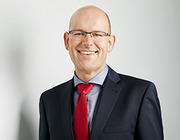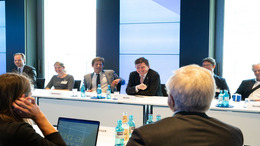People in the EU want more to be done in the fight against the deliberate spreading of untrue and fake content on the Internet. Overall, 85 percent of the EU’s citizens feel that policymakers should do more to prevent the spread of disinformation, while 89 percent say that the operators of social media platforms should take more action as well. The desire for a greater response goes hand in hand with a clear recognition of the problem among people living in the EU. Those are the findings from a new study by our Upgrade Democracy project. According to the study, more than one in two respondents (54 percent) are often or very often unsure whether the information they find on the Internet is true, while 39 percent say they are aware of having encountered disinformation.
"Reliable information is the basis for forming sound opinions and, as a result, for democratic discourse. People in Europe are very uncertain about which digital content they can trust and which has been intentionally manipulated. Anyone who wants to protect and strengthen democracy cannot leave people to deal with disinformation on their own," says Kai Unzicker, author of the study and our expert for democracy and social cohesion.
![[Translate to English:] viele Fragezeichen liegen übereinander. Auf der rechten Seite sticht ein rotes Fragezechen hervor.](/fileadmin/files/_processed_/c/2/csm_AdobeStock_204180371_KONZERN_ST-DZ_08_b42801d37b.jpg)







